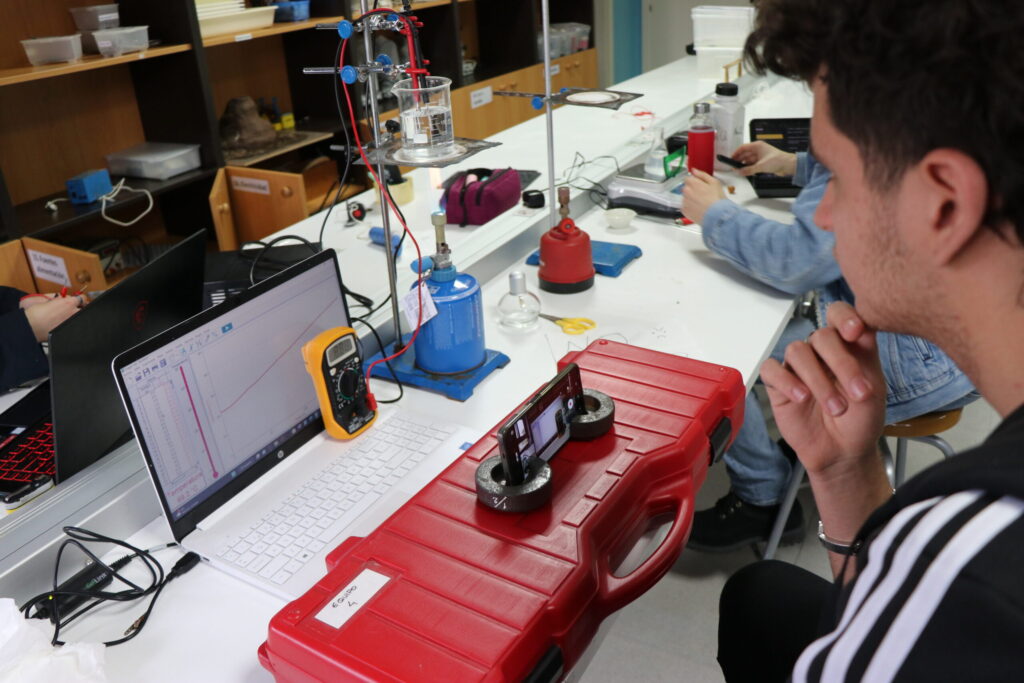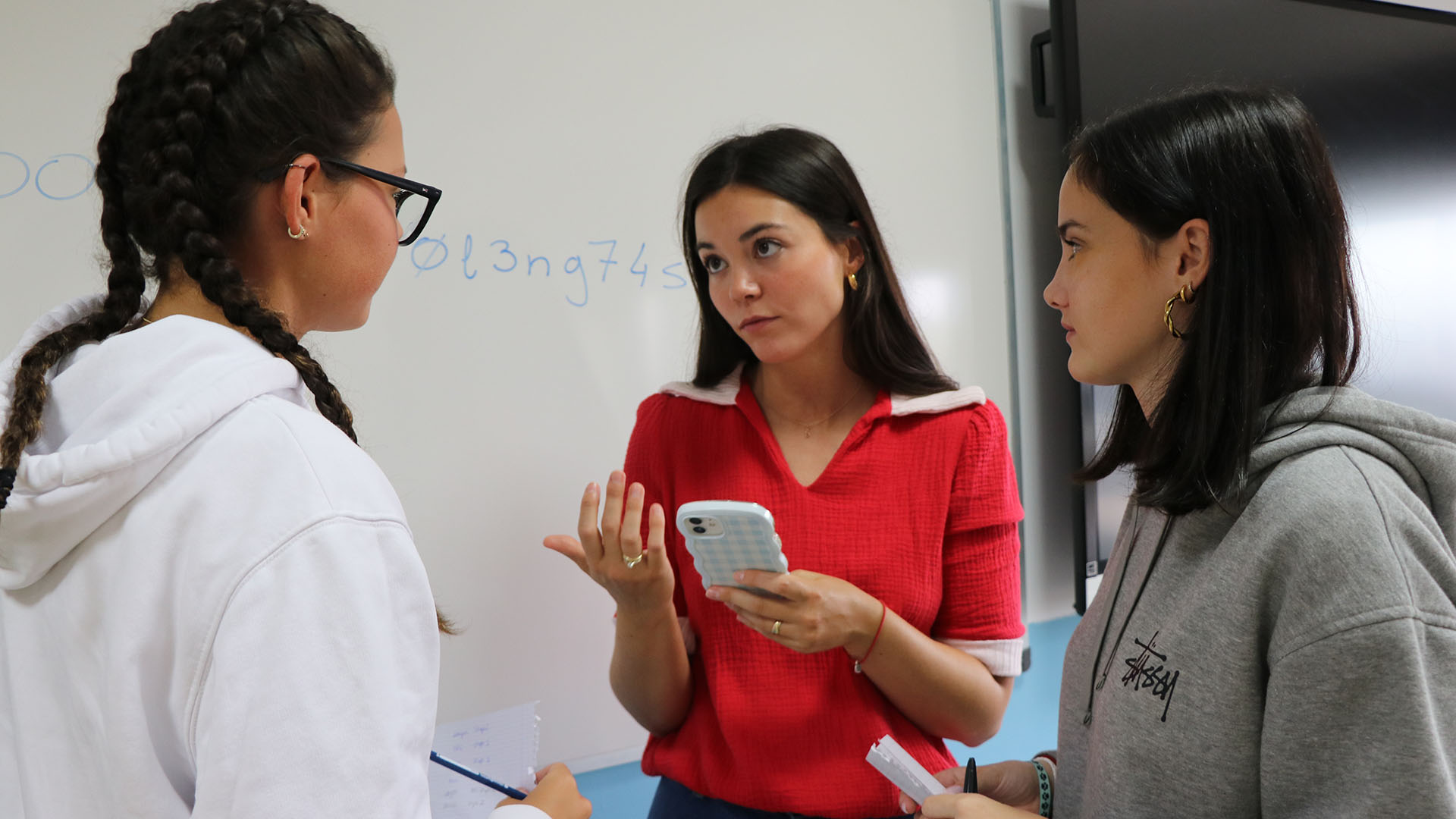Time management and task planning is a key factor in academic success. Knowing how to plan your week can make the difference between achieving your academic goals and feeling overwhelmed with homework. In this article, we will explore the challenges that arise when you don’t plan your week properly and provide valuable tips for overcoming them.
CONSEQUENCES OF NOT PLANNING THE WEEK PROPERLY
A student’s life can be hectic, full of classes, homework, exams and extracurricular activities. Without proper planning techniques, it is easy to become overwhelmed and disorganized. Often, this leads to poor academic performance and an absence of homework planning:
One of the main problems faced by students who do not choose to plan the week is lack of focus. Without a clear plan, it is easy to wander and waste time on non-productive activities.
LACK OF FOCUS
One of the main problems faced by students who do not choose to plan the week is lack of focus. Without a clear plan, it is easy to wander and waste time on non-productive activities.
STRESS AND ANXIETY
Lack of task planning can also lead to high levels of stress and anxiety. Students may feel overwhelmed by the amount of work to be done and the feeling of not having enough time to do it all. This clearly affects academic success.
PROCRASTINATION
Procrastination is another common challenge. Without a defined time structure, students tend to procrastinate on tasks. This results in a backlog of work and last-minute stress.
LOW ACADEMIC PERFORMANCE
Failure to manage time and plan tasks can have a significant, if negative, impact on academic success. Students may get lower grades due to lack of organization and study habits.
THE SERIOUSNESS OF THE LACK OF TASK PLANNING
Lack of planning skills may seem like a minor problem in a student's life, but its repercussions can be more serious than many realize. Below, we will explore the seriousness of this problem from various perspectives, backed up by statistics, expert opinions, books, health organizations...
1. REVEALING STATISTICS
The statistics are a clear reflection of the impact of poor time management and task planning on academic success.
Ministry of education
WORLD HEALTH ORGANIZATION
EXPERT OPINIONS
Experts in education and psychology support the seriousness of this problem. Dr. Maria Lopez, an educational psychologist, warns that the lack of homework planning can generate a sense of loss of control, which negatively affects students' self-esteem. Renowned author and time management and task planning expert David Allen also points out the importance of planning in his book "Getting Things Done". According to Allen, effective planning is essential to free the mind from anxiety and allow a clearer focus on academic tasks.
2. HEALTH ORGANIZATIONS AND GOVERNMENT
Health organizations and the government are also taking steps to address this problem. For example, the U.S. Department of Health and Human Services has launched campaigns to raise awareness about the importance of planning the week for the academic success and mental health of young people.
3. THE ROLE OF NGOS
Non-Governmental Organizations (NGOs) play a crucial role in addressing the lack of task planning in disadvantaged communities. Organizations such as “Educate for Success” offer mentoring programs and workshops for students who lack resources and support in planning their weeks.

THE URGENT NEED FOR A SOLUTION
Faced with this serious problem, the need for an effective solution is evident. Educating students from an early age in time management and task planning techniques is essential. In addition, educational institutions should provide resources and support to help students develop these skills.
It is imperative to take concrete steps to address this problem and provide young people with the tools they need to plan their week effectively and achieve academic success.
TIPS FOR PLANNING THE WEEK
We have now identified the problems. It is time to offer solutions. Here are practical tips to plan your week effectively and achieve academic success.
Sets clear goals
Before planning your week, define clear goals. What do you want to accomplish academically this week? Having clear objectives will give you purpose and help you prioritize your tasks.
BREAK DOWN TASKS INTO SMALLER STEPS
Break your academic tasks into smaller, more manageable steps. This will facilitate the process of addressing them and avoid procrastination.
ELIMINATES DISTRACTIONS
Identify and eliminate distractions while studying. Turn off your phone or use blocking apps to concentrate.
PRIORITIZES SELF-CARE
Academic success also depends on well-being. Make sure you take care of your physical and mental health through good nutrition, exercise and adequate sleep.
CREATE A CALENDAR
Break your academic tasks into smaller, more manageable steps. This will facilitate the process of addressing them and avoid procrastination.
ESTABLISHES FIXED STUDY SCHEDULES
Assign specific times for study. Maintain these schedules consistently to develop effective study habits.
TAKE REGULAR BREAKS
Don't forget to take regular breaks during your study sessions. Resting will help you stay focused and productive.
ADVANCED TASK PLANNING TIPS
In addition to the basic tips, here are advanced planning techniques to take your time management to the next level:
USES THE "POMODORO TECHNIQUE".
The “Pomodoro Technique” involves working for 25 minutes and then taking a short break. This can improve productivity and help maintain concentration.
PRIORITIZES TASKS
Identify the most important and urgent tasks and work on them first. This keeps you from feeling overwhelmed by a long to-do list.
USES TIME MANAGEMENT AND TASK PLANNING APPLICATIONS
There are many apps designed to help you plan your week. Find the one that best suits your work style.
LEARN TO SAY NO
Sometimes, in order to have a well-planned week, you must learn to say no to commitments that may interfere with your academic goals.

FREQUENTLY ASKED QUESTIONS ON HOW TO PLAN TASKS
What if I can't follow my schedule?
If you have difficulty following your task schedule, it is important to be flexible and adjust as needed. The key is to find a balance that works for you.
How much time should I dedicate to study each day?
Study time varies according to academic load and personal preferences. However, at least 2-3 hours of concentrated study per day is recommended.
What is the importance of taking breaks?
Taking breaks is essential to maintain concentration and productivity. Helps recharge your mind and prevents fatigue.
How can I maintain a balance between study and free time?
Maintaining a balance requires discipline and planning. Allocate specific time for study and free time in your calendar.
How can I deal with procrastination?
To combat procrastination, start with small tasks, use time management techniques and find motivation in your academic goals.
THE IMPORTANCE OF HOMEWORK PLANNING AT THE INTERNATIONAL PRIVATE SCHOOL EUROCOLEGIO CASVI

Eurocolegio Casvi International Private School, in Villaviciosa de Odón, recognizes the importance of planning in the academic success of its students.
Educational learning activities at Casvi Villaviciosa do not only consist of giving information, explaining concepts and proposing exercises to check if they were understood. We also work on the different techniques and study habits that can be used to make the effort used profitable.
Starting from the premise that its International Baccalaureate methodology is conducive to this (it has implemented its three programs, the PYP in Pre-school and Primary Education, the MYP in Secondary Education and the DP), it is a fact that the teaching of planning techniques has a marked effect on student learning.
Su Departamento de Orientación, en sintonía con los profesores de este centro escolar internacional, nos ofrecen estas claves para alcanzar el éxito académico:
1. GENERAL GUIDELINES FOR PLANNING OUR TIME
Before classes
Conduct a pre-reading of what is to be given and prepare the material that will be needed.
During classes
Be attentive and focused. Take notes, annotations, clarifications. Ask questions.
After school
Understand 100% of the information. Synthesize and memorize information by making diagrams, summaries, concept maps, flow charts…
2. SPATIAL GUIDELINES FOR ACQUIRING GOOD STUDY HABITS
- The study space must be fixed. Also the schedule.
- The room temperature should be between 18 and 22 degrees. It should also be ventilated from time to time, as the brain’s performance is very sensitive to the level of oxygen.
- The study table should be clean and tidy. It should not have any distracting elements. It must be spacious, that is to say, it must have all the necessary material, which will allow for active study.
- The chair should be comfortable but not too comfortable, as too much comfort can negatively affect performance.

3. HOW TO AVOID PASSIVITY
These are the steps to take when planning our time in order to achieve educational success. To be successful, it is necessary to distribute the time correctly: divide it throughout the course instead of studying the days before the exam and prepare a study schedule.
Staff
Not all students need to devote the same amount of time to study. It must be adapted to personal possibilities and limitations.
Useful, realistic and simple
Planning should be perceived at a glance.
Flexible
A buffer time should be available to avoid non-compliance with the schedule in case of unforeseen situations
Doing so has advantages: it clarifies the ideas, helps to fix them in the mind, allows them to be placed in sight, reinforces the personal commitment to carry them out.
Study time
It should be distributed in maximum sessions of 50 minutes with rest intervals of 10 or 15 minutes between sessions.
Programming
It is advisable to program first the activities of medium difficulty, followed by those of high difficulty. The simplest tasks will be completed.
4. AND ON THE DAY OF THE EXAM...
- If you don’t remember something… Continue
- If you are in the middle of the exam and there is a question you don’t know or don’t remember, continue with the rest of the questions and leave this one for the end.
- Keep track of time during the exam, but don’t pay attention to how long your classmates are taking.
- Set aside some time before submitting the exam to review it.
,,
5. FINAL FORMULA FOR ACADEMIC SUCCESS.
School success = Ability + Interest + Study techniques + Time spent + Persistence + Self-confidence.
FINAL ADVICE TO ALL STUDENTS
Planning the week effectively is essential for academic success. Students who can address the challenges of time management and task planning tend to do better and experience less stress. In addition, Eurocolegio Casvi International Private School prides itself on supporting its students in acquiring these planning skills, preparing them for a successful future.
In short, knowing how to plan the week is an invaluable skill that all students can develop. With clear goals, an organized schedule and effective habits, you can maximize your academic success and reduce stress. That is why Eurocolegio Casvi International Private School recognizes the importance of this skill and works actively to help its students reach their full potential.



